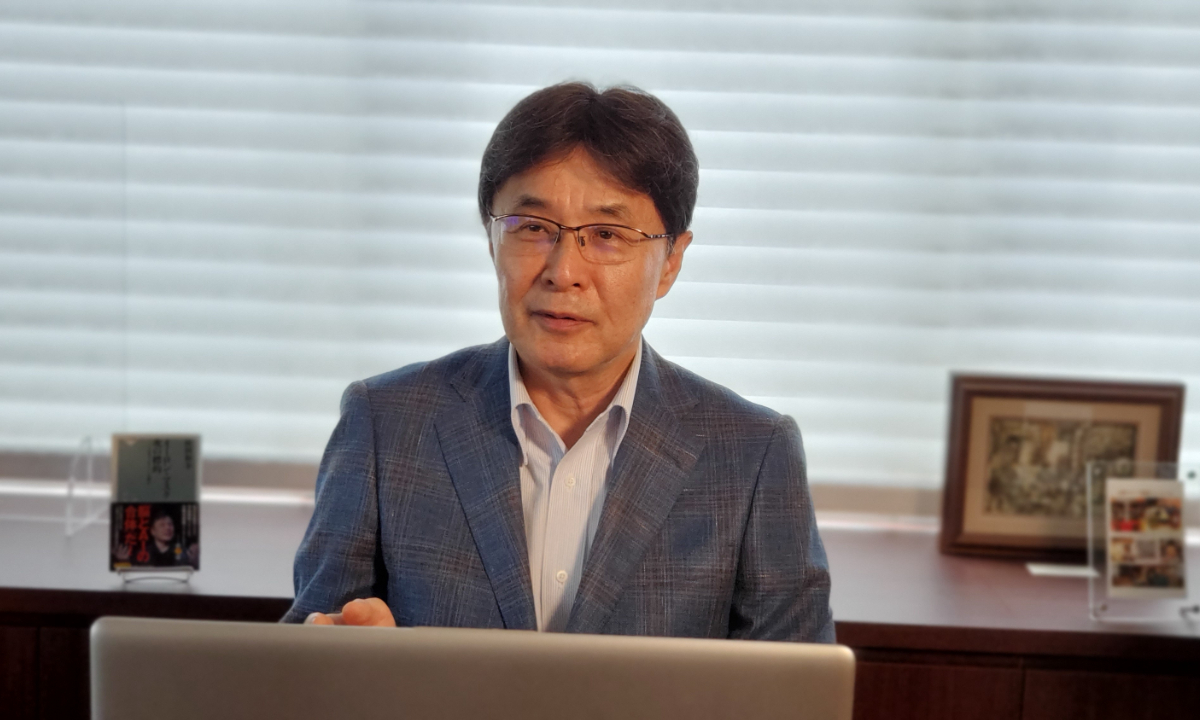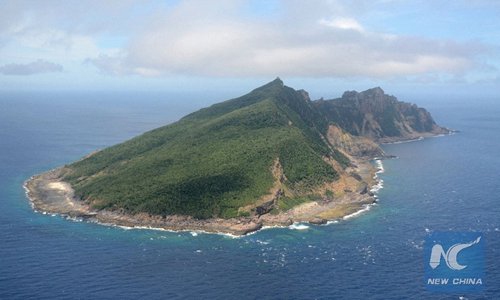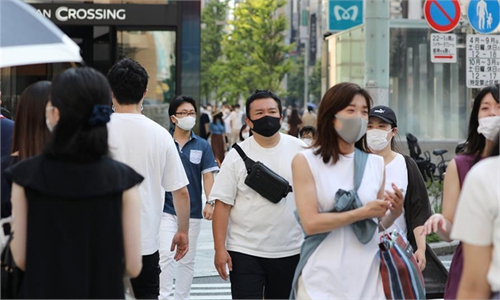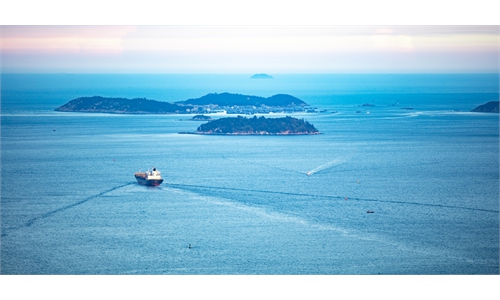Fumio Kishida's attendance at NATO summit goes against trend of the times: former senior Japanese official

Kazuyuki Hamada, a former Japanese Parliamentary Vice Minister for Foreign Affairs. Photo provided by the interviewee.
Japanese Prime Minister Fumio Kishida is confirmed to attend a summit of the North Atlantic Treaty Organization slated for late June in Spain, which would make him the first Japanese leader to take part in a gathering of the Western alliance.
Kazuyuki Hamada, the President of Research Institute for Future Technologies, and former Parliamentary Vice Minister for Foreign Affairs, told the Global Times in an exclusive interview recently that Kishida seems to be consolidating his stance that a "expanded NATO" is indispensable, and it is against the times to propose a "global NATO" that will lead to a new cold war or hot war.
According to the Nihon Keizai Shimbun, Kishida will call on heads of states at the NATO summit to turn their attention to Asia, declaring that Japan will "fundamentally reinforce Japan's defense capabilities within the next five years," and promote the Japan-US alliance to a higher level.
Observers noted that Kishida's presence at the NATO summit would be a sign of greater unity between Japan and the West as Japan interacts with NATO more frequently.
"Japan's advocacy of 'Asian NATO' or 'global NATO,' and the realization of it, is nothing more than going against the post-Cold War era." Hamada told the Global Times. "This unnecessarily intensifies the arms race and reduces the value of diplomacy."
In his keynote speech at the Shangri-La security dialogue on June 10 in Singapore, Kishida also expressed Japan's political ambition to expand its security role.
"The alliance with the US is important, but it is also essential to strengthen and develop trust with neighboring countries in Asia, including China," Hamada said.
According to the Sankei Shimbun, the Japanese government plans to send a defense ministry official to the Taipei Office of the Japan Association for Taiwan Exchange this summer. Former Japanese Prime Minister Shinzo Abe recently also has reiterated the notion that "a Taiwan emergency is a Japanese emergency" and vowed to strengthen ties with the island of Taiwan and "aspiring" countries.
"It seems that the island of Taiwan has become the focus point of intelligence to monitor and analyze the movements of Chinese mainland," Hamada analyzed. "I think Japan is also considering the possibility of dispatching active land, sea and air Self-Defense Forces personnel in the future."
The US is repeating the exercises on the map of the "US-Japan-Korea" joint military response assuming an emergency in the island. It is expected that Japan will make such exercises more practical, hoping to avoid any military confrontation, and information sharing is also probable between Japan and the US through constant contacts, Hamada noted.
In addition, the containment against China of the US-Japan alliance is now expanding from diplomacy and security to economy. During US President Joe Biden's visit to Japan, he officially announced the launch of the Indo-Pacific Economic Framework (IPEF), which is seen as a counter to China. On May 23, during his meeting with Biden, Kishida made no secret of his ambition, declaring that Japan and the US should strongly lead the international community.
"The US has advocated IPEF with the intention of holding down China not only in terms of military affairs but also in terms of the economic power that supports it, and countries with economic and trade ties with China are wary," Hamada said. "There were also many complaints about the lack of clear market opening measures such as the reduction of tariffs by the US."
Hamada also said that Biden, who is suffering from a decline in approval ratings, needs a popular policy for the fall midterm elections and the 2024 presidential election, and the IPEF is also designed to impress the idea of "a strong leader confronting China." However, IPEF is excluding Myanmar, Laos and Cambodia who are considered pro-China. Therefore, IPEF is accelerating the division of ASEAN and promoting the US efforts of enclosing China which will be endangering the economic and political stability in Asia, he said.
This year marks the 50th anniversary of the normalization of China-Japan relations. Hamada pointed out that Japan and China are neighboring countries with a long history of exchange. "I would like the Kishida administration to understand that unilateralism has its limits and that it is essential to form a coalition with Asia and the world to solve these global challenges. I would also like Kishida to share such a sense of crisis and the idea of a fateful community through a summit meeting with China, which has the largest population in the world and is Japan's indispensable trading partner and find a common way toward world peace," he said.



